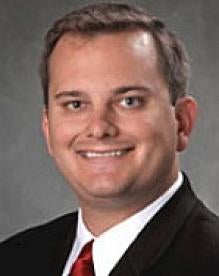The Advisory Committee on Civil Rules for the Judicial Conference of the United States is considering major changes to the discovery process in federal civil cases. The changes to the Rules currently being discussed would restrict the scope of discovery and place stricter limits on the number of discovery requests parties can serve. On the one hand, these rules would likely come as a welcome change to some as the revised rules would dramatically reduce the cost of discovery. On the other hand, the changes would undoubtedly cause some consternation among litigators and clients concerned about being able to obtain information necessary to their cases.
A more detailed discussion of the changes the Advisory Committee is considering can be found beginning on page 217 of the Minutes of the January meeting of the Standing Committee. Here is a summary of the most interesting changes:
• Currently, a party may obtain discovery on any nonprivileged matter relevant to a party’s claim or defense that is reasonably calculated to lead to the discovery of admissible evidence. The proposed changes would emphasize proportionality. Discovery would be limited to any nonprivileged matter relevant to a party’s claim or defense that is “proportional to the needs of the case considering the amount in controversy, the importance of the issues at stake in the action, the parties’ resources, the importance of the discovery in resolving the issues, and whether the burden or expense of the proposed discovery outweighs its likely benefit.”
• The proposed changes would dramatically curtail the default rules for various discovery tools:
◦ The maximum length of deposition would be shortened from 7.5 hours to 4.
◦ Parties would be limited to a maximum of 5 depositions, instead of the 10 currently allowed.
◦ The number of interrogatory requests allowed to each party would drop from 25 to 15.
◦ Parties currently may serve an unlimited number of requests for admission. The Advisory Committee proposes limiting parties to 25 requests for admission.
◦ A party would also be limited to serving 25 requests for production of documents.
• Objections made in response to requests for production would be subject to the same specificity requirement as interrogatories. Parties would also have to state whether they are withholding documents on the basis of an objection.
• If a party chooses to respond to a request for production by making documents available for inspection, the response must state the latest date and time when the inspection will be allowed.
These proposed changes would dramatically reshape the discovery process in civil litigation. However, they still have a long way to go before they become law. The Advisory Committee must receive permission from the Committee on Rules of Practice and Procedure (“Standing Committee”) to publish the proposed changes. If the proposed changes are published, they will be circulated to the bench, bar, and public who will have six months to submit written comments. The Advisory Committee must also hold public hearings on the proposed changes. The Advisory Committee will review the comments and testimony and make any changes to the proposed rules it feels are appropriate. After making any changes, the Advisory Committee will submit the proposed changes to the Standing Committee.
The Standing Committee will then conduct an independent review of the proposed changes and, if the changes are approved, the Standing Committee will recommend the changes to the United States Supreme Court. The Supreme Court will consider the proposed changes and, if it agrees with them will promulgate the revised rules by order before May 1 of the year the changes are to go into effect. The proposed changes will take effect no earlier than December 1 of that year unless Congress enacts legislation to reject, change, or defer the proposed rule changes.



 i
i



